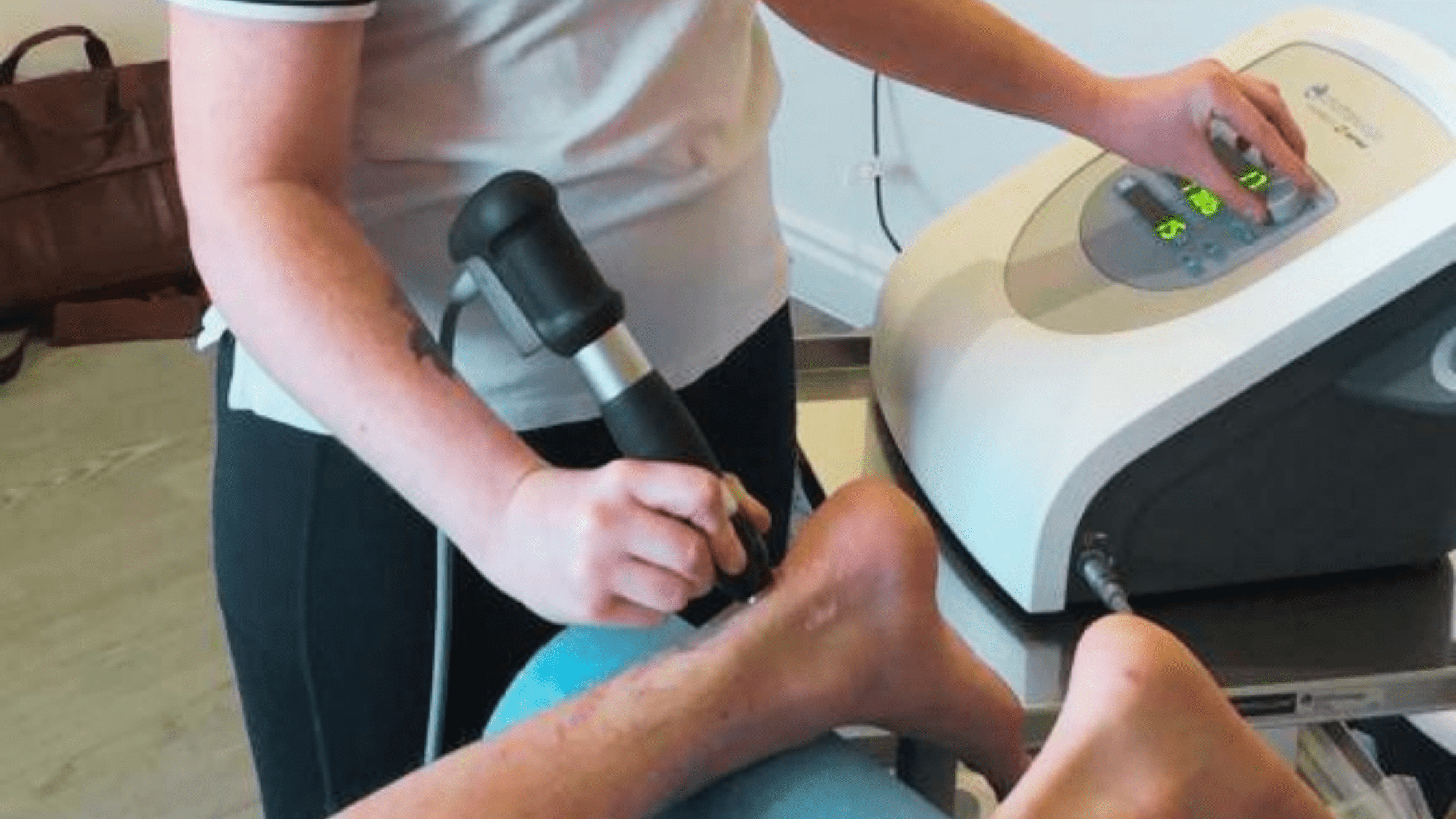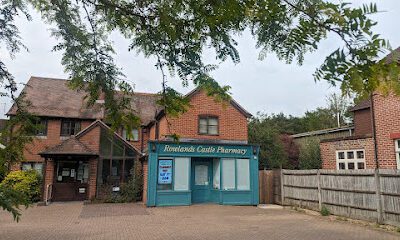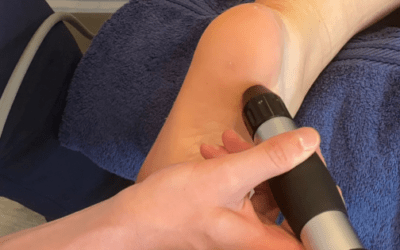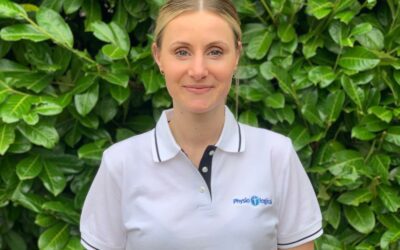Case Study – Shockwave treatment for Chronic Achilles Tendinopathy
Symptoms
A 72 year old client came into the clinic presenting with sharp pain in the right Achilles, which gradually started 3 weeks prior whilst walking their dog. The following morning the Achilles was swollen, tender and stiff, it had become painful to walk. The main aggravators for the tendon were going down stairs and ankle dorsiflexion which puts the irritated Achilles on stretch.
The Achilles had been previously injured. The Achilles was first injured when playing rugby 53 years ago and again 17 years ago, there was also a history of reoccurring acute calf strains in the same leg. Due to this it is clinically appropriate to assume there are some chronic changes in the tendon.
Noticing the symptoms were not improving with self-management he booked into the clinic to see one of our Sports Therapists, who he had seen before for a previous, now resolved injury.
Assessment
The initial appointment consisted of a thorough history and subjective assessment, followed by objective testing of the joint and tissue. Using several ankle specific tests our therapist was able to rule out joint pathologies and came to the conclusion of acute flare of Chronic Achilles Tendinopathy.
The exact cause is of this injury was unknown, there are certain risk factors. Achilles tendons have been shown to become painful due to age related changes, overuse and change to activity levels. Intrinsic risk factors include those who are diabetic or have high cholesterol, joint stiffness, including hyperpronation (flat feet), stiffness in the ankle joint or hips and/or a leg.
Subjectively, the client falls into a few of the potential causes. Such as age related changes, a history of reoccurring Achilles injuries (overuse/chronicity), total hip replacement in 2018, pre-diabetic and high cholesterol.
Treatment
After the initial assessment our therapist used deep tissue massage to release some of the tension in the calf. The patient and therapist also worked together to create a simple rehab plan that worked with his schedule. This involved tailored at home exercises to strengthen the musculature in a control way using isometric, slow resistance exercises, avoiding over-stretching, and gentle joint glides to help recondition and improve range of movement. These will create the right conditions for the Achilles to positively adapt and recover.
Alongside the active treatment, RPW (Radial pressure wave) Shockwave therapy was used. Shockwave was appropriate due to the chronic condition of the tendon. Chronic conditions are ones that have stalled in a healing phase, therefore unable to fully recovery or return to the tendons original state. Tendons need to store energy, be elastic and responsive to movement; this tendons structure had become thickened and stiff.
RPW Shockwave treatment helps to improve chronic musculoskeletal conditions. Tissue in a chronic state of injury when subject to mechanical stress from shock waves will adapt to the stimulus. When administered into the tissue, the waves have effects on a cellular level that regenerate healing; Increased blood flow, formation of new vessels, tissue regeneration, pain relief, pro inflammation and inflammation regulator.
It’s the best my Achilles has felt in years!
Outcome
Research recommends 6 sessions of shockwave treatment, which are administered 3-10 days apart depending on condition, tissue tolerance and response.
After the first shockwave session the client described an instant pain relief when performing the post treatment test, and stated it was the best the Achilles had felt in years. There are some common short lived side effects to this treatment, including slight swelling which this client experienced for 1 day post treatment.
With each session the symptoms were improving and the rehab plan was able to be progressed.
Evidence suggests that Radial shockwave therapy is effective when treating lower limb conditions such as Achilles tendinopathy, plantar fasciitis, greater trochanteric pain syndrome and medial tibial stress syndrome within all phases of rehabilitation. (Korakakis, 2018)
If you are suffering from a reoccurring injury or feel that a long term injury is taking longer to heal than anticipated, then we would be happy to help and discuss treatment options with our Stansted Park Therapists. Book your appointment easily via phone, email or through our secure online booking.




